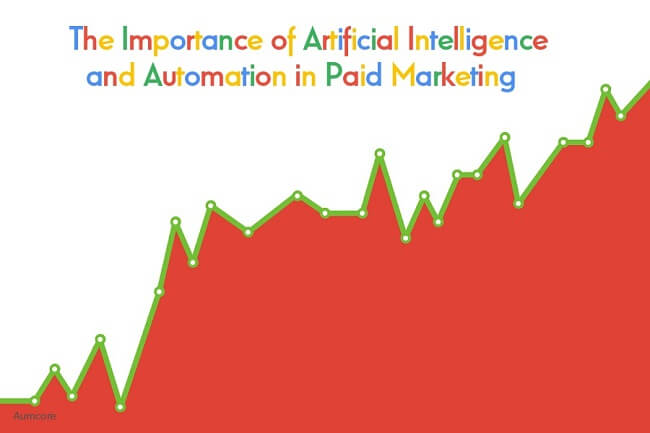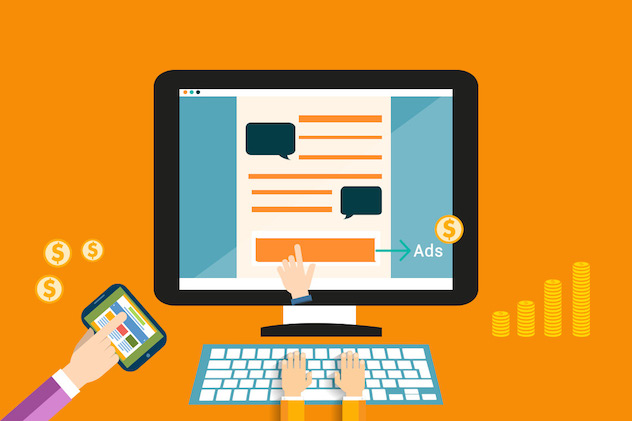When was the last time you went a day without using some sort of tool that makes use of artificial intelligence (AI)? A week ago? A month? A year? If you’re like me, you probably can’t even remember because AI is so ingrained in your life that living without it seems so impossible that, well, you can’t remember a day without using it. And before you say, no, that’s not me, stop to think about where AI actually is in your day-to-day life.
For starters, it’s in that little something you probably use so much that it’s practically an extension of you: your smartphone. What about Netflix, do you enjoy the occasional Netflix and chill? Well, it’s there too. How about online shopping — are you a fan of Amazon? Yup, there too. The point being that when it comes to AI, you can’t get away from it.
Fun Fact: Interest in AI is so high that investment into AI startups by venture capitalists has increased 6X since 2000.
Artificial Intelligence Marketing
Just like every day life, AI is also quite present in the world of marketing, and you’ll be hard-pressed to find a digital agency that doesn’t use it. From artificial intelligence content marketing, to AI-enabled advertising, marketing is smarter than ever. So much so that about 73% of CEOs are predicting AI will play a key role in their companies’ future, and 47% are already operating with a defined AI strategy.
AI Marketing Tools
Within the marketing world, AI is serves as a tool that leads to actionable insights and streamlined strategies. For example, AI can analyze hundreds, even thousands of data points about your users, and then use that information to completely personalize their experience with your brand:
- IBM Watson puts the power of data in your hand and lets you understand your customers as individuals to deliver seamless customer experiences.
- BloomReach gives you algorithms and advanced merchandising tools so you can optimize each visitor’s search, browse and landing page experiences.
Apart from personalization, AI can also be a great help to marketers in the realm of content creation. Keep in mind that although it can author content in a way that makes it seem as if it was written by a person, AI still can’t bring that personal touch to content that forms intimate connections between authors and readers:
- Wordsmith is a natural language generation (NLG) platform that uses a template to turn data into insightful narratives.
- Quill, like Wordsmith, uses data as an input, but also analyzes it further to create narratives that are better aligned with a brand’s specific tone and language.
From content creation we arrive at chatbots, which are AI-powered tools that reside in your website or app at all hours of the day. As a constant presence that works through the harshest weather and doesn’t stop at helping one person at a time, chatbots present an ideal opportunity for marketers who want their customers to have the best experience possible:
- Aivo will the backbone of your customer support by giving you a chatbot that helps you respond in real time, and even understands each channel’s rules so it can adapt automatically and respond.
- Landbot.io is a platform that turns your website or Facebook page into a chatbot by creating conversational interfaces in substitution of forms.
Speaking of bringing customers good experiences, AI also enables two things that consumers everywhere love: enhanced ways of searching with voice and visual search:
- Voice search allows us to search with our voice rather than text, leading to intent-based searches that hit closer to the mark than keyword-based text search.
- Visual search uses pictures instead of words to search, which leads to results that are more closely aligned to what you had in mind than any word could.
And now we move onto the importance of AI in paid marketing, so get ready to talk about machine learning PPC services, Google Ads AI and much more.
AI and Paid Marketing
Let’s start with machine learning because it’s what’s enabling AI to do everything it can. Straight from Google, “machine learning is a new way of problem solving. Rather than spending hundreds of hours manually coding computers to answer specific questions, we can save time by teaching them to learn on their own.” In terms of paid marketing, machine learning can use billions of consumer data points to automatically adjust bidding (talk about Ads automation).
For example, this leads to Smart Bidding, which is an automated bid strategy that uses machine learning to optimize for conversions. To break it down, smart bidding essentially uses the user’s historical behaviors to calculate the likelihood of a conversion, and then automatically adjusts bids for every auction. In doing so, it allows for three core capabilities:
- Auction-time bidding that uses contextual signals at each auction, such as time of day, specific ad creative being shown, device and browser, to identify the conversion opportunity and set an optimized bid.
- Cross-signal analysis that uses signal combinations to improve your conversion rate. For example, if your mobile conversions are 15% higher than your desktop conversions at a specific time of day, Smart Bidding will adjust your mobile bids by +15% to account for this.
- Query-level learning that maximizes the performance for new and low-volume keywords by looking at performance data for similar auctions (in your account), thereby allowing you to make more informed bidding decision with fewer performance fluctuations.
With Smart Bidding taking over the heavy lifting aspect in your PPC services, you can rest assured knowing you’ll get better results by doing less.
Related Post:Paid Marketing Statistics to Help You Plan for 2018
On the subject of letting Google Ads machine learning take some of the work off your plate, another way AI is helping your paid marketing efforts is by giving you the option of letting it add and test thousands of keywords and headlines to see which work best. Case in point, Dynamic Search Ads that will actually use your own website to target ads and create whole new keywords you can use. For example, when someone searches for something related to a title or frequently used phrase in your site, Google Ads will step in and use those titles and phrases to select a landing page AND generate a relevant headline for your ad. In doing so, it not only makes it more likely that potential customers will find you, but that they’ll find you because what you’re offering is directly related to what they’re searching for.
Final Thoughts
By enhancing your own efforts with data-backed strategies that take millions and even billions of data points into consideration, artificial intelligence is making paid marketing easier than ever. On the one hand, you have improved ad targeting that places your ads in front of the people who are more likely to convert. On the other, you have optimized bidding that makes sure your bids lead to conversions. All in all, it’s a good time to be in marketing.




